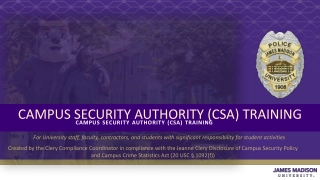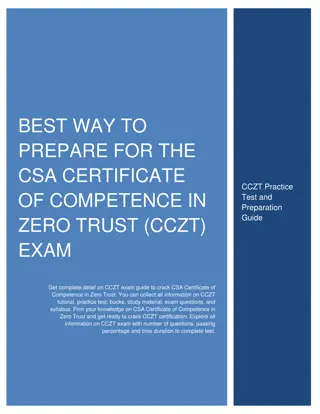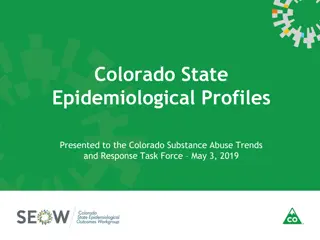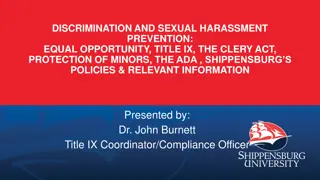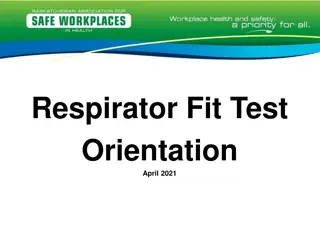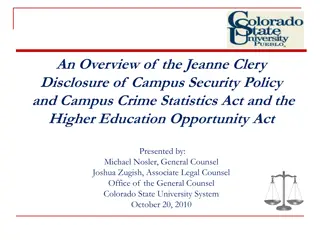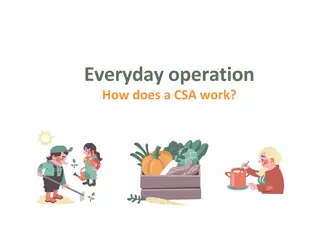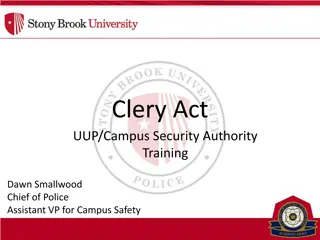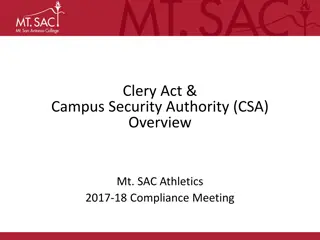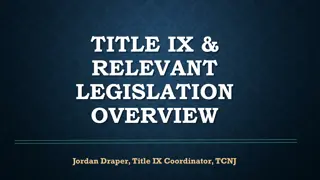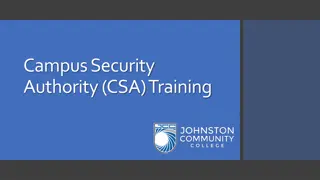Understanding the Clery Act and CSA Responsibilities at Colorado State University
Leverage your awareness about the Clery Act that mandates universities to disclose crime information on campuses. Discover the role of Campus Security Authorities (CSAs) at Colorado State University and their responsibilities in reporting crimes promptly while supporting victims. Learn who falls under the CSA category and their duties outlined by the federal law.
Download Presentation

Please find below an Image/Link to download the presentation.
The content on the website is provided AS IS for your information and personal use only. It may not be sold, licensed, or shared on other websites without obtaining consent from the author. Download presentation by click this link. If you encounter any issues during the download, it is possible that the publisher has removed the file from their server.
E N D
Presentation Transcript
COLORADO STATE UNIVERSITY CSA TRAINING
What is the Clery Act? Lehigh University student Jeanne Clery was raped and murdered in her dorm room in 1986. Her parents advocated for legislation that would require universities to disclose information regarding crime on college campuses. The federal Crime Awareness and Campus Security Act was passed in 1990. Today, this act is commonly known as the Clery Act.
What is the Clery Act? Continued Universities must provide: Select annual crime statistics. Support for victims of crime. Policies and Procedures related to the dissemination of timely warnings and emergency notifications, options for survivors of sexual assault, domestic violence, dating violence, and stalking, missing student notifications, and campus crime reporting processes.
What is a CSA? A Campus Security Authority (CSA) is a specific university employee, student, and/or contractor that is federally mandated under the Clery Act with the responsibility to report crimes that are reported to them. If you have been identified as a CSA your role at CSU falls under one of the following four categories: 1. 2. You work within the CSU Police Department. You are not a member of the CSU Police Department but are responsible for campus security. You have been designated by CSU as somebody to whom crimes should be reported. (e.g., Title IX Coordinator) You are somebody with significant responsibility for student and campus activities. (e.g., a director who oversees housing; an athletic director; a faculty advisor to a student group or club) 3. 4.
Who is NOT a CSA? Faculty who do not have responsibilities outside of the classroom. For example, taking students on a field trip, acting as an advisor, or coaching students, are all significant responsibilities for student activities that would make one a CSA with respect to that activity. Physicians or nurses whose only responsibility is to provide care to students. Pastoral or professional counselors.
CSA Responsibilities CSAs are federally obligated to report crimes that are reported to them. Reports should be made as soon as reasonably possible. CSAs ARE encouraged to assist the victim in reporting. NOTE: A victim can choose not to report, however a CSA is still obligated to report. CSAs are NOT: Required or expected to investigate. A confidential resource but can direct others to confidential services, such as the Counseling Center.
Clery Reportable Crimes Criminal Offenses Hate Crimes VAWA Offenses Arrests & Referrals Crimes in the criminal offenses column plus: Criminal Homicide Domestic Violence Weapons Law Violations Sex Offenses Larceny Theft Robbery Aggravated Assault Simple Assault Dating Violence Drug Law Violations Burglary Intimidation Motor Vehicle Theft Stalking Liquor Law Violations Destruction, damage, or vandalism of property Arson
Clery Geography On-campus On-campus student housing facility Public property adjacent to & accessible from campus (Rule of thumb: sidewalk-street-sidewalk) Any non-campus property or building owned or controlled by the institution or a recognized student organization this includes hotels and classrooms rented by the institution for overnight, school sponsored trips
Title IX and the Clery Act Title IX and the Clery Act are two separate federal laws that both address sexual offenses. Below is a chart to clarify the differences and reporting requirements of these laws. Title IX Title IX Clery Act Clery Act All CSU employees and volunteers, including faculty, staff, and students acting in their employment or volunteer roles are Responsible Employees Responsible Employees, meaning they are mandatory reporters of any violations or alleged violations of Title IX. Responsible Employees Responsible Employees are required to make those reports to the Office of Support and Safety Assessment/Title IX within 24 hours of knowledge of incident. Those exempt only include licensed healthcare professionals and victim advocates. Only individuals who meet the federal definition are Campus Security Authorities Campus Security Authorities. Titles Titles Title IX is concerned with any discrimination that occurs whether it involves a student, faculty, staff member, or guest of CSU. If the incident is made known by a Responsible Employee, it is required to be reported regardless of when or where the incident occurred. Resources are available for any party. any incident of sex-based Clery is concerned with where crime occurred. If a Clery crime Clery reportable area Clery reportable area, it should be reported. It does not matter if the victim or perpetrator is associated with the university. where and what Clery crime occurs in a what Overview Overview Both Title IX and the Clery Act address sexual offenses. While many of the processes to resolve sexual offenses are the same, there are different reporting processes. Intersections Intersections Any incident of sexual violence occurring on or off campus should be reported directly to the Office of Support and Safety Assessment/Title IX. Sexual offenses that occur on campus property should be reported directly to CSUPD. CSUPD works closely with Title IX. Reporting Reporting
Necessary Information for Reporting Your name or the name of the reporting person and contact information. Type of incident (See Clery Crime Reporting Form). Date incident occurred. Location of incident. Description of incident and law enforcement case-number if known. Whether or not the incident was bias motivated.
Reporting a Clery Crime Complete the Clery Crime Reporting Form Complete one form for each crime reported If no crimes have been committed over the course of a calendar year, you must complete the annual crime report form
Questions? Contact Information Contact Information Rebecca Miller Clery Compliance Officer Safety and Risk Services Rebecca.S.Miller@colostate.edu 970-491-6379



